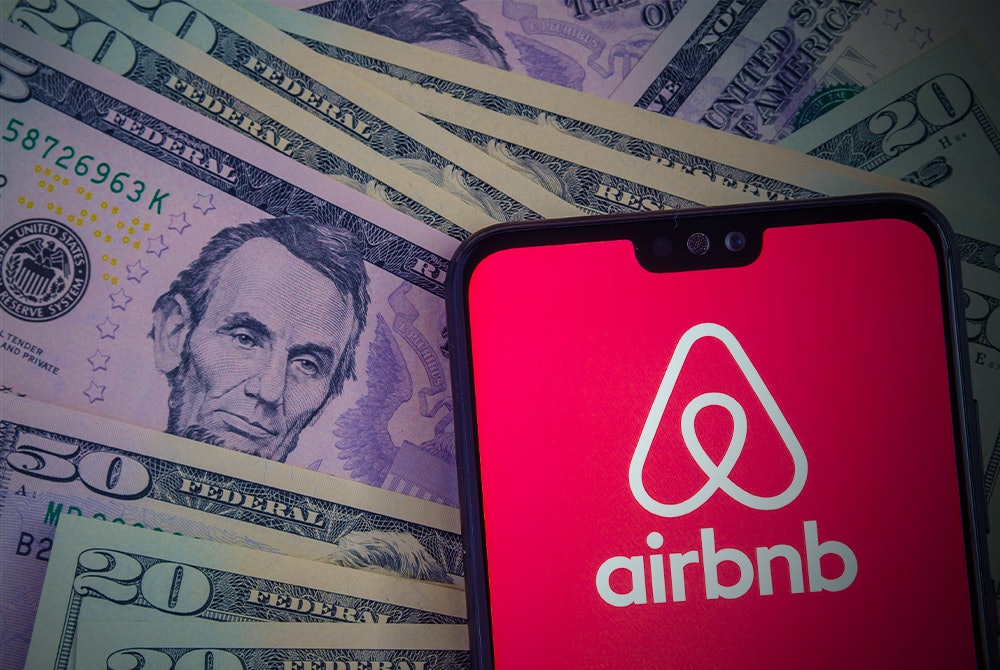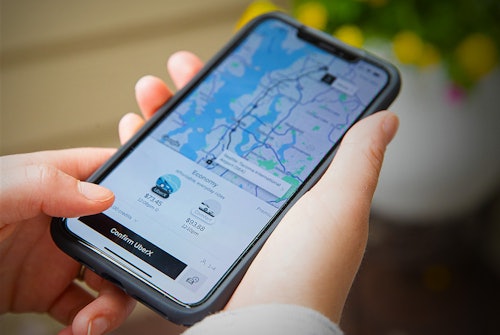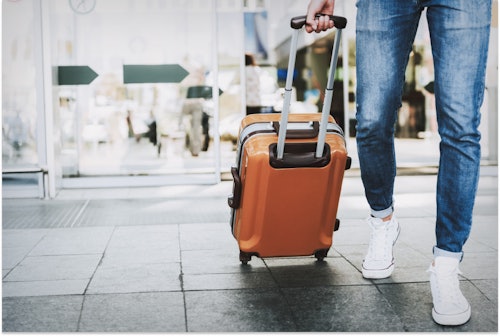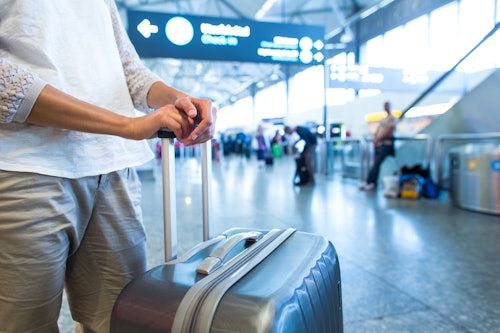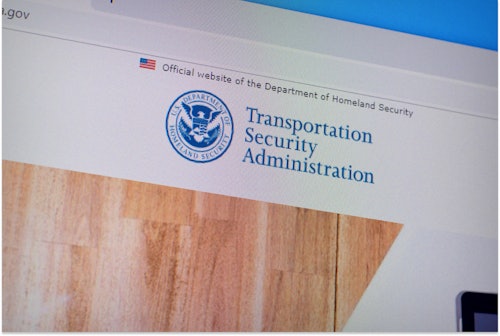Travel In Depth
United States Travel Scam Statistics 2020
Travel scams involve stealing from people either as they're traveling from one location to another or when they're on vacation. They work by taking advantage of the fact that travelers are often distracted, tired, have their guard down, or are not used to securing their possessions while on the move.
Many travelers, especially those on vacation, are understandably more focused on fun than security and may not be on the lookout for criminals. Others simply don't know what to look out for because the theft and scams common in their travel destination are so different than what are common where they come from.
While often mistaken for common pickpockets or crafty lone-operatives, Thieves are frequently part of larger criminal organizations, and these have robbed millions of dollars from unsuspecting travelers. For example, between January and March 2021 alone, travel-related scams cost victims $26 million.
Types of Travel Scams
Some of the most common travel scams involve pickpocketing and snatch-and-grab theft, someone claiming to find a gold ring, spiking your drink, and fake police officers.
Pickpocketing and the Snatch-and-grab
Pickpockets devise several ways to grab the personal possessions of travelers, making this one of the more common travel scams. They operate by either waiting for a moment when you're distracted or initiating the distraction themselves.
For example, when you're riding a crowded train, a pickpocket may stand directly next to you, and when the train shifts, may lean their body into yours, creating contact. Then, while you're distracted by their body hitting yours, they may grab your wallet or phone out of your pocket or purse.
Anytime you're on public transportation that stops multiple times, a thief may try to grab your purse, backpack, or bag as the train or bus is about to leave a stop. When the doors are about to close, the thief grabs your belongings and jumps through. The doors shut a moment later, and the vehicle pulls off while they run in the other direction.
"Finding" Your Gold Ring
At times, a scammer may approach you and claim they've found your gold ring. Even if you didn't lose one, you might lean in to inspect the shiny—yet fake—object. At this moment, the thief may try to steal something else from you. They may also try to demand a finder's fee if you claim it's yours.
Airbnb Scams
Airbnb, a favorite travel booking site, has unfortunately made it easy for people to be scammed. Both homeowners and travelers share the same risk of losing their money to shady characters.
Homeowners could be scammed by travelers who:
- Make fake complaints about the property and ask for refunds
- Fail to pay for their stay
- Damage the property and claim the damage was already there
Travelers could be scammed by:
- Scammers who create fake property listings (leaving you without your money and a place to stay)
- Property owners who charge extra for damage you didn't cause
- Property owners who request additional fees for no reason
Taxi Scams
If you've been overseas, you may have encountered a taxi driver that has tried some sketchy tactics to steal your money. For example, cab drivers may:
- Overcharge you, banking on your lack of knowledge of how much the ride should actually cost
- Claim their meter is broken, so they can charge you more than they should
- Drive you "the long way" to your destination, resulting in a much larger bill
These travel scams are particularly common at busy airports, targeting new arrivals. However, you can avoid them with a little bit of preparation.
If you are staying in a reputable hotel, it is a good idea to contact them before you arrive and ask them about the best way to get to them and the approximate cost. Also, check the route using Google Maps so you can gauge the length of the trip and approximate travel time.
Finally, always use licensed taxis. If they tell you their meter is broken, politely decline and find another driver. Always be courteous but firm and speak up if you feel like something is wrong.
Motorbike or Jetski scam
This scam is most commonly reported in parts of Southeast Asia, where operators rent out equipment like jet skis or motorbikes to tourists. In some cases, scammers take your passport or driver's license as part of the deposit. Then, when you return the rental, the operator claims that you have damaged the equipment, and they pressure you into paying for the repairs.
This is a tricky one to avoid. If you get caught up in it, you may not have any other option than to pay up, particularly if the scammers start getting aggressive. The most important thing is never to hand over personal items like your passport, credit card, keys, or driver's license to someone you don't know.
Credit Card Skimming
Scammers use a "card skimmer" to steal your credit card information from the magnetic stripe on the back of your card. Skimmers can be attached to any credit card reading device (including ATMs and gas pumps) to harvest the data and use it to commit fraud. In the case of ATMs, scammers will hide a camera to record you entering your PIN.
Most credit cards now have a chip that allows contactless payment to "tap and go" instead of inserting your card into a machine.
If you have a phone or smartwatch with NFC, you can pay via Apple Pay or Google Pay which have additional security, so your data is not exposed. If you notice unusual transactions on your credit card, report them (and dispute them) to your bank or financial institution immediately.
Free Public WiFi
Many of us need to be connected at all times, and many of the services that we use rely on an internet connection. Your cell phone service provider may allow international roaming when you are traveling. Alternatively, you could buy a SIM plan from a local provider.
Many of these plans will have restrictions on data and/or the cost of data is much higher. This means you might become more reliant on free public WiFi offered in places like airports, cafes, and grocery stores.
While it is tempting to quickly log in to check social media, read the news, check your bank account, or send a few messages to friends, it's not worth the risk. Scammers use many tactics, including hacking into the networks or creating similarly named networks to trick you into logging in, to steal your data (e.g., using a man-in-the-middle attack).
The best advice is: don't use public WiFi, but if you have to, you should always use a virtual private network (VPN), which will encrypt your data.
Holiday Rental Listing Scam
We all want to find that dream holiday rental—booking can be competitive, and when you find a place you like, you want to lock it in before anyone else does. Scammers use a few tactics, including:
- Creating fake listings
- Hijacking a real listing and posting them on other rental websites with their contact details
- Hijacking the email account for the listing agent or property owner
It is probably a scam if they ask you to wire money for any upfront payment, like a security deposit. You can do a few things to check that the listing is legitimate, including:
- Search other rental websites to see if the same property is available and cross-check the contact details.
- Find the agent's details on the web and call their office directly to verify the listing.
- Book through established travel booking sites and use their credit card facilities for payment.
How to Beat Travel Scams
You can beat travel scams by making sure you keep your guard up while in public places, mainly when strangers draw close to you. You should also never leave your pocketbook or purse unattended or easily accessible by a thief. Any time a stranger approaches you, no matter the reason, try to maintain a reasonable distance between the two of you so they can't try to pick your pocket.
It's best to only carry the minimum amount of identification on you at all times, particularly because if a thief steals your ID, they could use it for identity theft. For example, if you don't need your driver's license, you can leave it in your hotel room, securely locked away.
Some other best practices to follow when traveling include:
- Only carry the cash and cards you absolutely need. Try having as little as $50 or $60—or even less if possible.
- Any time someone asks you for money, beware. While some people may be legitimate panhandlers or beggars, others can be thieves. If you want to give to beggars, it's best to carry a small amount of change in a side pocket that you can give over quickly without having to take out an enticing wallet or wad of cash.
- Only pay using traceable methods, such as credit cards.
- Don't use public WiFi—if you absolutely need to use public WiFi, use a VPN.
- Be wary of landlords who only give vague information or don't communicate well.
- Do your research before traveling to avoid getting ripped off by taxi drivers.
Fallen Victim to Travel Scams?
If you've fallen for a travel scam, you should immediately report it to the police. Give as much information as possible, such as:
- Full details of what happened (e.g., dates, times, locations).
- The scammer's appearance, voice, and mannerisms as possible.
- Contact information of the scammer.
- All communication you had with the scammer.
- Any websites you used.
Depending on how you were scammed, you should also consider:
- Changing your passwords for compromised accounts (as well as accounts that share the same login)
- Canceling your credit/debit cards
- Regularly monitoring your credit/debit card statements and reporting fraudulent charges
- Reporting the scam to the authorities (other than local police), especially if a website scammed you
Scams Relating to Travel

How to Beat Airbnb Payment Scams That Can Leave You Stranded
When booking your next travel destination via Airbnb, be sure to always pay using the site's online system, or you could be scammed out of your money.
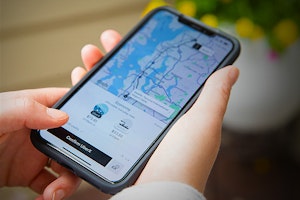
Uber Cancellation Fee Scams: Beware of Sketchy Uber Drivers
If your Uber driver is a no-show, be sure you follow up and make sure you're not charged a cancellation fee—you could be falling into a scammer's trap.
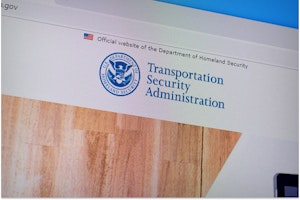
TSA PreCheck Renewal: Beware of Scam Emails
If it's time to renew your TSA PreCheck membership, visit the TSA website directly versus clicking a link in an email—a new scam is underway targeting PreCheck members.

Beware of Airbnb Damage Scams: Take Photos of Your Rental
Before you settle into your Airbnb, take as many photos and videos of it first—it could save you a lot of money and hassle in the future.
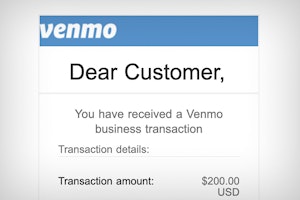
Selling on Facebook Marketplace? Beware of Fake Venmo Emails
Scammers are sending fake Venmo emails to Facebook Marketplace sellers in an attempt to steal login information and money.
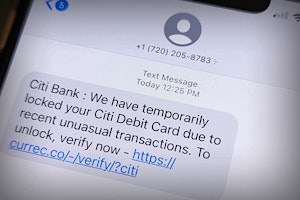
Citibank Text Message Scam: Locked Debit Card Alert Is Fake
If you've received a locked debit card text message from Citibank, it's likely a scam. Don't click on the link and delete the text message.
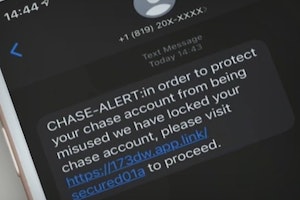
Real Chase Fraud Text Alert or Scam Message?
If you receive a text message from Chase Bank, don't click on any links or call the phone number listed—it could be a scam designed to steal your information and money.

Amex Fraud Text Alert Scams: Spotting a Fraud
If you receive a text message from American Express, don't click on any links or call the phone number listed—it could be a scam designed to steal your information and money.

Fake Verizon Text Messages: How to Avoid a Scam
Verizon may send you text messages from time to time with account updates or data usage alerts, but beware—most of these aren't really from Verizon but scammers.
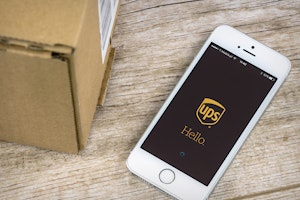
Get an Unexpected Delivery Alert? It May be a UPS Text Scam
Scammers are using SMS messages to send fake alerts to customers regarding a package delivery. Here's what to know about this scam.
Guides Relating to Travel
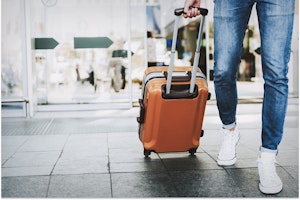
Restrictions & Guidelines for Traveling During the COVID-19 Pandemic
As the holiday season approaches, be sure you understand the COVID-19 rules and restrictions for the city you're visiting so you can enjoy your vacation.
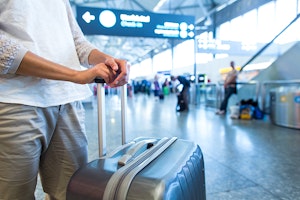
Airline Secrets: How Much is Your Delayed Baggage Worth?
Landing in a city without your bags can mean extra costs to replace your items. But according to airline fine print, you may be entitled to up to $3,800 to cover purchases.

Direct or Third-Party: What is The Best Way to Book Hotels?
We break down the pros and cons of booking a room through a hotel’s website or using third-party sites to secure the best deals and why.
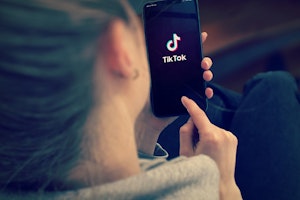
How to Get Verified on TikTok
Securing that little blue checkmark can mean brand collabs, sponsorship opportunities, or protecting your unique content from impersonators.

How to Tell if Nikes Are Fakes: From Tags to the Stitching
Nike is one of the biggest brands targeted by counterfeiters and scammers - be extra careful with Nike products from non-official retailers as you could end up with a fake
News Relating to Travel

Urgent CDC Warning: Eye Drops Linked to 3 Deaths, Loss of Vision
The CDC is warning eye drops users of a rare bacterial infection from 2 brands of eye drops. The infection is resistant to antibiotics and has resulted in the loss of vision, loss of eyeballs and the death of 3 patients.

Banks May Refund More Zelle Scam Victims in 2023
Zelle scams have reached a serious volume. New reports suggest that banks are looking at new refund protections for customers in 2023.

Optus Data Breach - One of the Worst Cyberattacks in Australia
Hackers have gained access to 9.8 million customer records from Optus in Australia, exposing personal information such as driver licence, medicare and passport details.

Roe vs. Wade Overturned: Abortion Rights in Your State
Find out what the overturning of Roe vs. Wade means for abortion rights in your state.
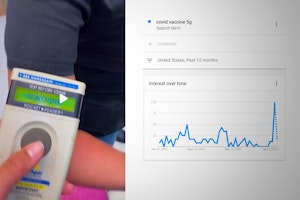
Searches for "COVID Vaccine 5G" Hit All-Time High, But Microchips Definitely Not in Vaccine
The number of people searching for the term "COVID vaccine 5G" on Google has just hit an all-time high, but there's one way to be sure that there are no microchips.
